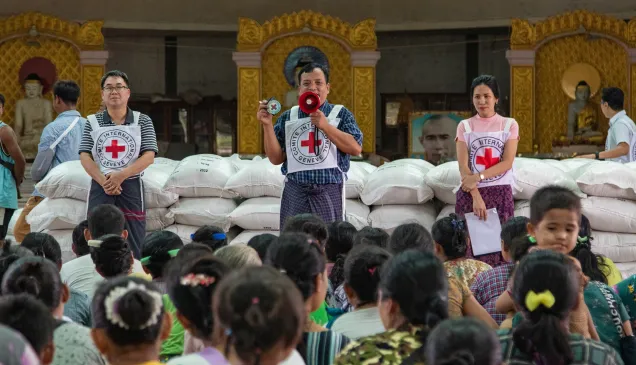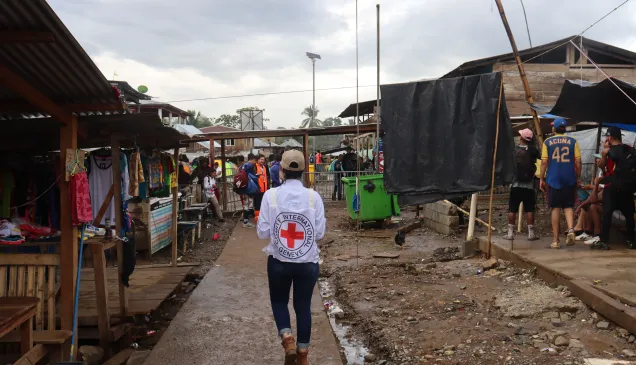How can improved human resource management in jails better address detainees’ needs?
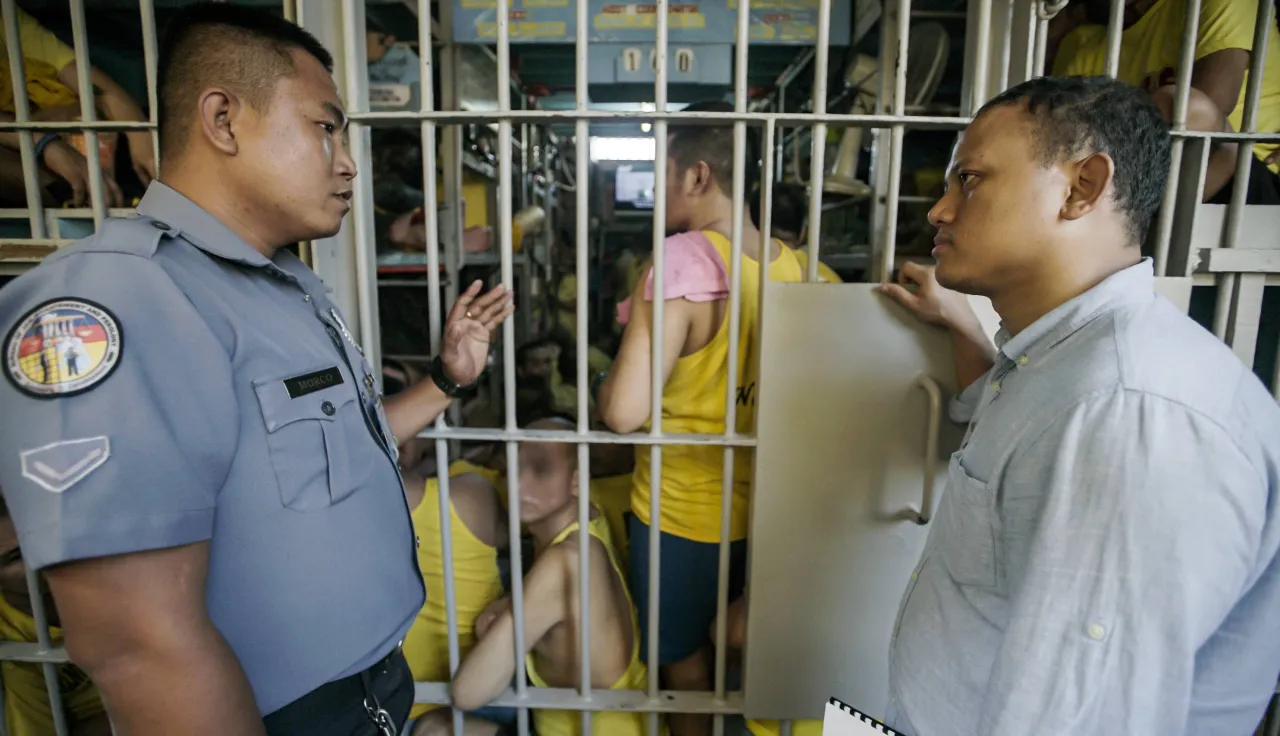
By supporting the Philippines' Bureau of Jail Management and Penology to enhance its human resource management through a five-year strategic plan, the ICRC hopes to help them put the right people at the right place at the right time.
The ICRC is hopeful that the HR strategic plan's implementation will contribute to the ultimate goal of improving humanitarian conditions in BJMP's detention facilities.
Extreme congestion has been long recognized as a humanitarian challenge in many Philippine detention facilities as the jail population rose throughout the years.
Detention staff, such as those in the Bureau of Jail Management and Penology (BJMP)'s 470 jails in the country, are mandated to provide inmates with basic services and assistance in judicial processes. However, due to insufficient staff, they are often overstretched and thus resort to multitasking or coping through an informal co-management system with detainee groups.
The ICRC, which has been working with the BJMP for over 14 years on systemic issues linked to overcrowding and its humanitarian consequences, understood that the agency's personnel was its greatest resource in ensuring humane living conditions and treatment of detainees. It was clear to the BJMP, and the ICRC wholeheartedly agreed, that to meet both the operational needs of the agency and the humanitarian needs of PDLs, an increase in overall staff was a very welcome and much needed development. However, equally important was the need to ensure that the right people were in the right place at the right time to ensure the BJMP can meet its duty of care toward detainees.
This is why the Philippine delegation—in a new ICRC approach to detention work—decided to support the BJMP in enhancing its Human Resource (HR) Management.
We spoke with ICRC regional prison systems advisor Terry Hackett, who worked closely with the BJMP on this project, to get a peek into the work behind the BJMP's five-year HR strategy, which was formally launched on 14 January 2021.
Why did the ICRC choose to support the BJMP on HR management?
At the center of any humanitarian or operational response is people.
With just over 12,000 staff for over 140,000 detainees in early 2018, the BJMP was clearly understaffed. Professionals critical to meeting the humanitarian needs of detainees, such as nurses, paralegals and engineers were unable to focus on their essential roles as they were assigned two to three other roles within a jail.
In 2018, the Philippine government supported the BJMP in increasing the number of its personnel with a goal to boost staffing levels by 5,000 between 2018 and 2020. With this growth in HR, in early 2019, at the request of BJMP, we began to provide technical and financial assistance to help the bureau to increase their capacity in HR management. This included working side-by-side to help build a strong foundation to ensure the additional staff were in the right place at the right time to meet the humanitarian needs of detainees.
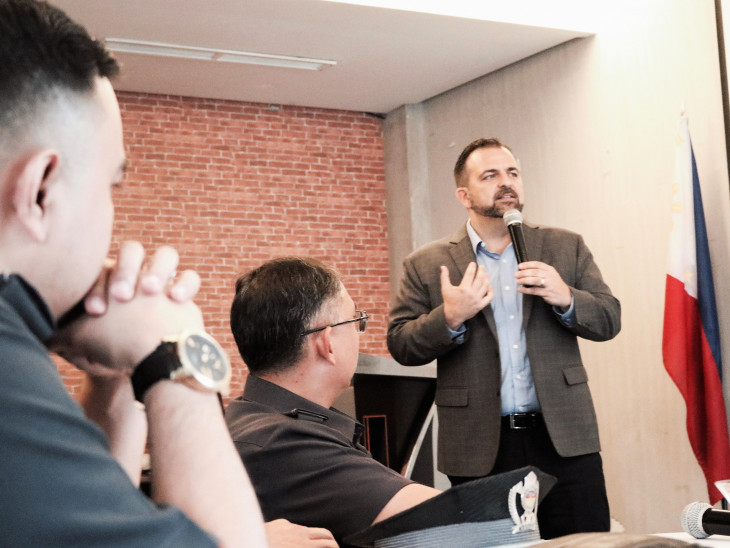
ICRC regional prison systems advisor Terry Hackett facilitating a BJMP deployment workshop in 2019
As a result, a more responsive organizational structure for jails was developed by the BJMP that elevated the importance of health services within BJMP operations. An evidence-based tool (and related policy) was also developed to help the BJMP to identify their minimum staffing needs for each of the 470 jails. This tool is now used by the bureau to continue to lobby for additional resources to meet their projected need of around 45,000 staff that are required to fully meet their duty of care toward persons deprived of liberty.
Can you tell us more about the how the strategic plan was developed?
In 2020, BJMP saw a clear need to lay out a roadmap for HR management in the future and the ICRC was again pleased to assist in this endeavor. With our assistance and that of the Center for Human Resource Strategies Asia, the BJMP embarked on a six-month strategic planning process. Led by the Deputy Chief of Administration for the BJMP, the process included gaining a clear picture of the current state of human resources in the bureau through a survey of over 11,000 staff. The voice of PDLs was also taken into account in order to understand how gaps in HR management is impacting detainees, but the pandemic limited the number of interviews with them. We however, shared the PDLs' concerns with the BJMP based on over hundreds of ICRC visits to BJMP jails throughout the years.
A virtual "visioning" retreat was then held with the BJMP Command Group to identify where the BJMP foresees itself in 2025 in relation to human resources. The strategic plan was then drafted as a roadmap for the bureau to achieve their vision over the next five years. Utilizing both the Philippine Civil Service Commission framework and the UN Minimum Standards for the Treatment of Prisoners (the Nelson Mandela Rules) as key reference documents, the strategic plan identified nine priority areas and related action plans.

In September 2020, BJMP Chief, Jail Director Allan Iral, and the Command Group held a virtual visioning retreat to help them foresee where they would like the bureau to be in terms of human resources in five years.
Which among the nine priority areas does the ICRC think is most relevant to improving services for detainees?
That is a tough question to answer... all nine priorities are important as they are interconnected. Expanding the number of non-uniformed personnel will help bring more services to detainees. A competency-based HR framework will allow the BJMP to target their recruitment and selection efforts to increase professionals such as engineers and health care staff. Increasing the representation of women and LGBTQ leaders within the BJMP will be more representative of the detainee population.
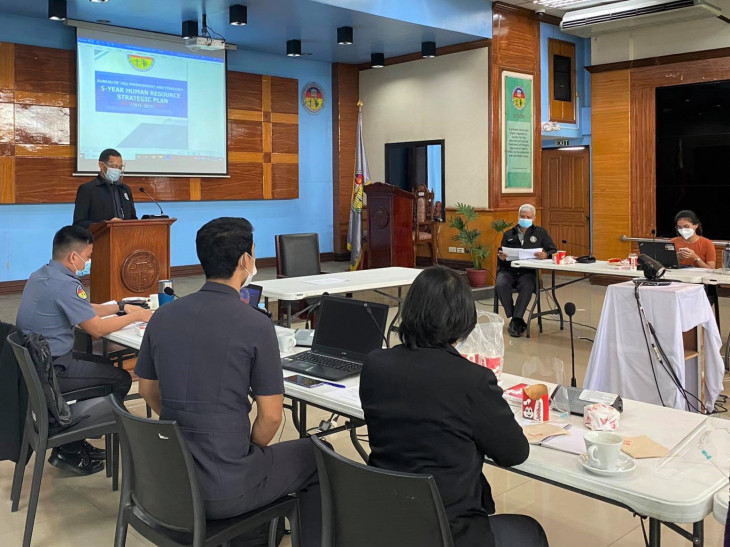
The BJMP's Technical Working Group working on the final draft of the HR strategy's action plan in December 2020
Improving learning and development programs will help BJMP staff better understand and implement international standards such as the Nelson Mandela Rules.
Again, all are important and when implemented, will contribute to a people-focused approach to addressing humanitarian concerns within BJMP jails.
The strategy runs for five years. Will the ICRC continue to walk side-by-side with BJMP to support its implementation?
Absolutely. Late last year, the ICRC and BJMP amended the Terms of Reference for our joint Strategic Working Committee, first created in 2015, to include the establishment of a Technical Working Group (TWG) on HR Management. This BJMP/ ICRC TWG will continue to support the BJMP's efforts to increase HR management capacity within the bureau with the ultimate goal of improving humanitarian conditions of detention in BJMP facilities. This includes providing technical assistance on various aspects of the action plans moving forward.
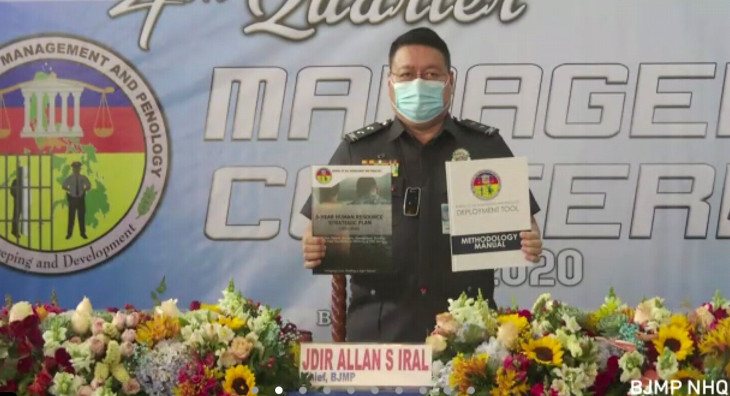
BJMP Chief, Jail Director Allan Iral holding copies of the BJMP's 5-year HR Strategic Plan during its virtual launch on 14 January 2021


